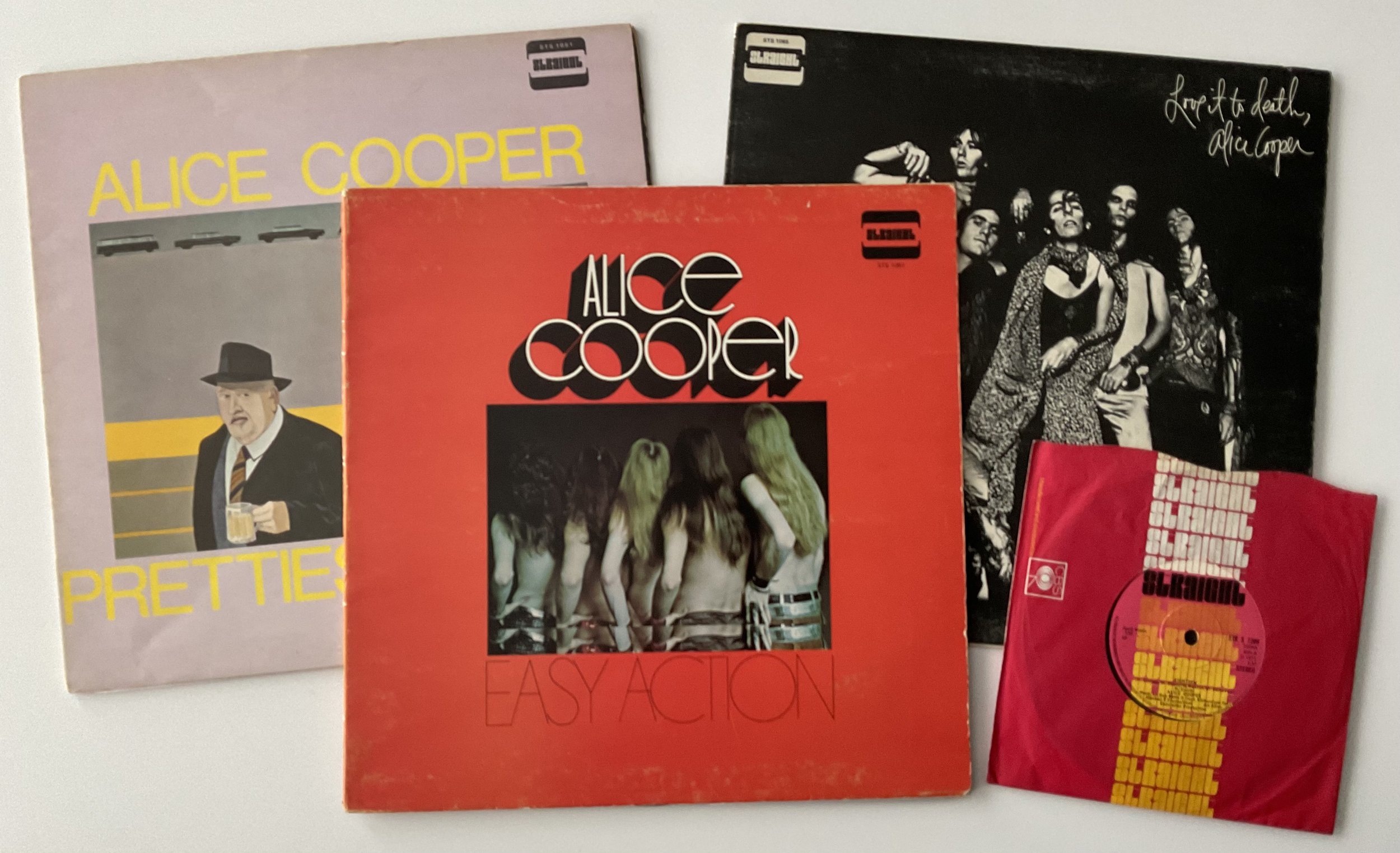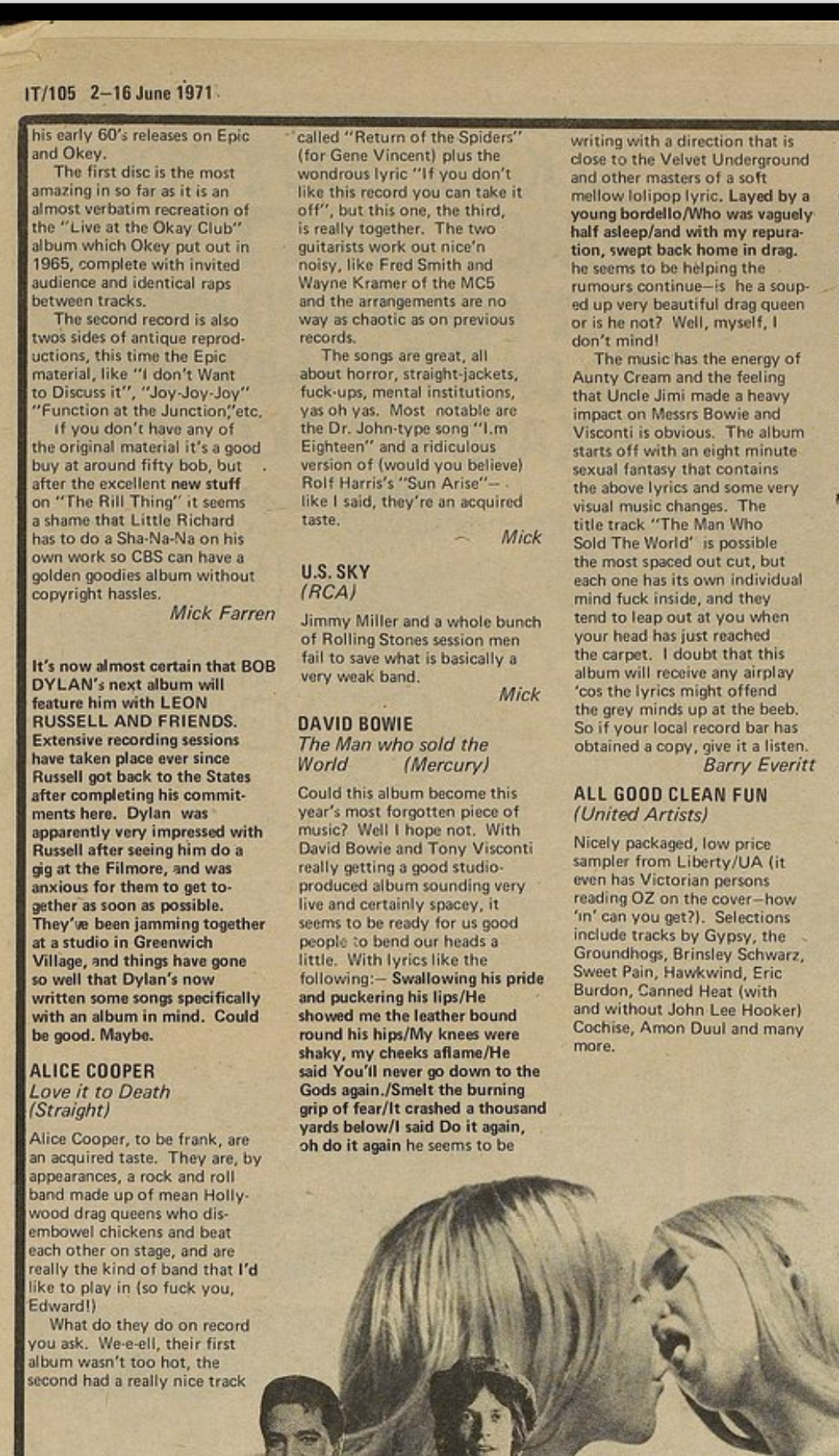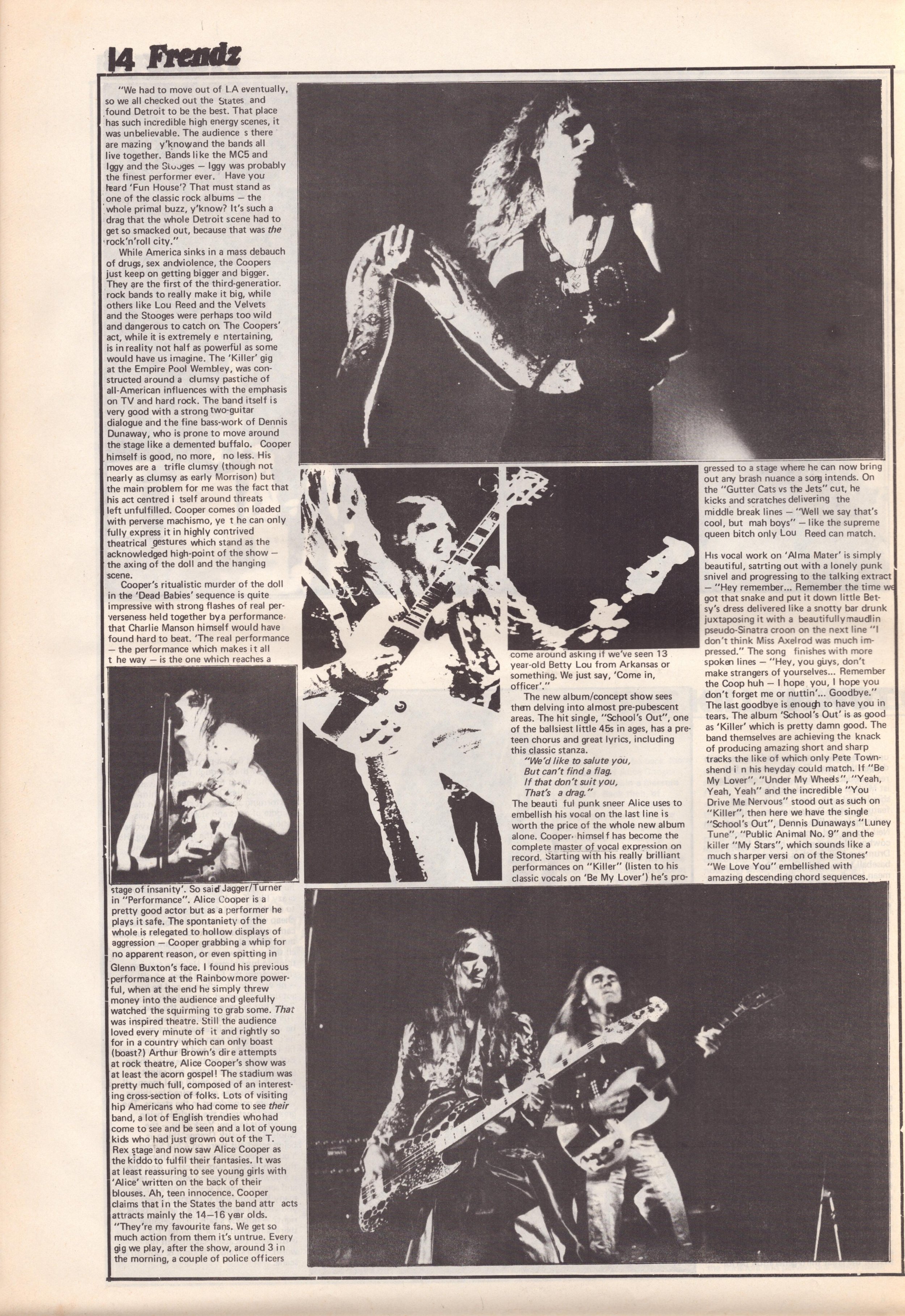Before Alice Cooper became the big thing and media darlings with ‘School’s Out’ their core appeal in Britain was to freaks and rockers. What you have here is a few choice cuts from before the deluge that mostly focus on the underground press, Frendz and IT in particular. Here’s what Mick Farren and Nick Kent, among others, had to say about the band who ‘act as a mirror – people see themselves through us’.
Alice Cooper’s CBS distributed Straight label UK releases
‘a rock and roll band made up of mean Hollywood drag queens who disembowl chickens and beat each other on stage, and are really the kind of band that I’d like to play in’ – Mick Farren
Greg Shaw, Jukebox Jury Creem
Greg Shaw thinks it is all about the Stooges, he wouldn’t be the last
You wanna know all about third generation rock n roll then look no further . . . . Alice with Steve Mann in Frendz
. . . some more third generation proselytising with Jamie Mandelkau in IT
“Got me so hot I could scream . . .”
‘Alice Cooper are supreme pooff rock . . .’ Mick Farren at his most lazy, touting the consensus.
John Peel, Singles: Disc and Music Echo (March 25, 1972)
‘This really is an odd group to come to terms with . . .’ – John Peel
All change and mind the gap: ‘The sight of rocking hordes of 12+ boppers at Alice Cooper’s Wembley concert would seem to prove that his efforts in the direction of bizzaro teen appeal are paying dividends’. – Mick Farren
Below, Myles Palmer, on the eve of the Wembley concert, gives a perfect summation of where things then stood . . . a worthy quote line in every paragraph, but the conclusion will do: ‘As music it’s not half bad, as showbiz it’s riveting and as trash it is absolutely incomparable’.
Dave “Boss” Goodman arrives late to the party . . . While Nick Kent gets the scoop on the Coop after Wembley (July 1972):
While America sinks in a mass debauch of drugs, sex andviolence, the Coopers just keep on getting bigger and bigger. They are the first of the third-generation rock bands to really make it big, while others like Lou Reed and the Velvets and the Stooges were perhaps too wild and dangerous to catch on The Coopers act, while it is extremely entertaining, is in reality not half as powerful as some would have us imagine.




























